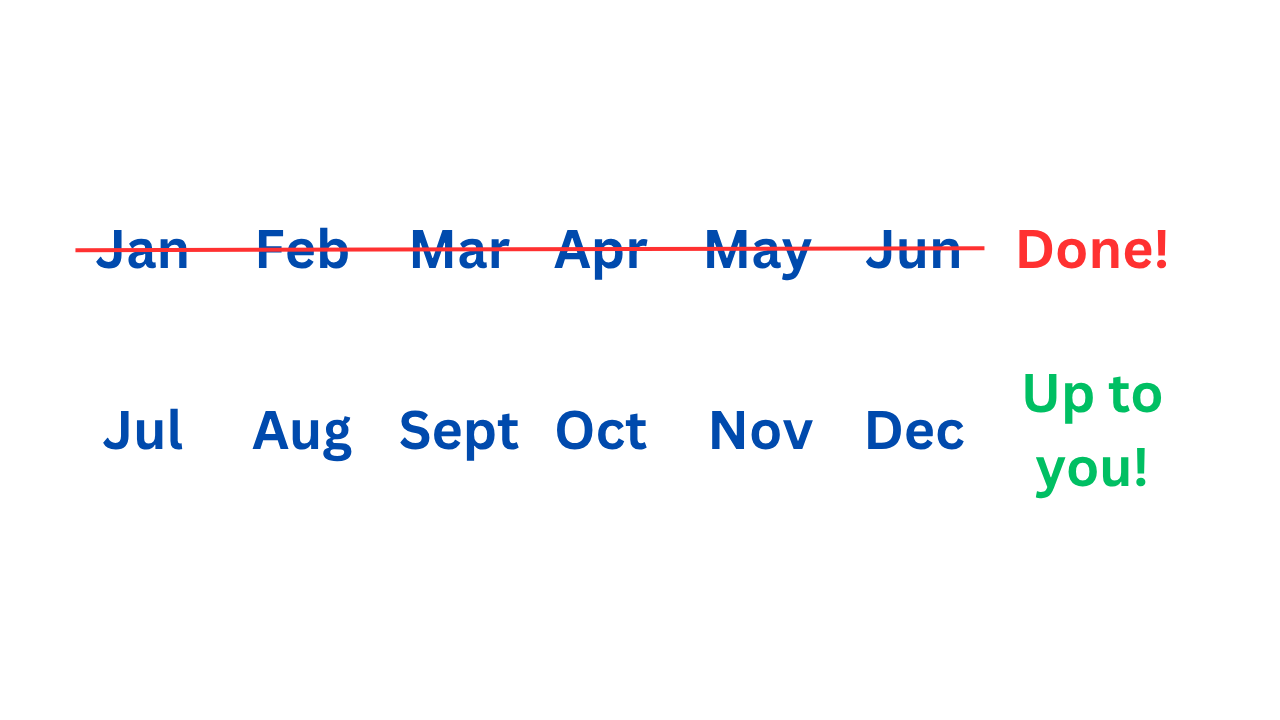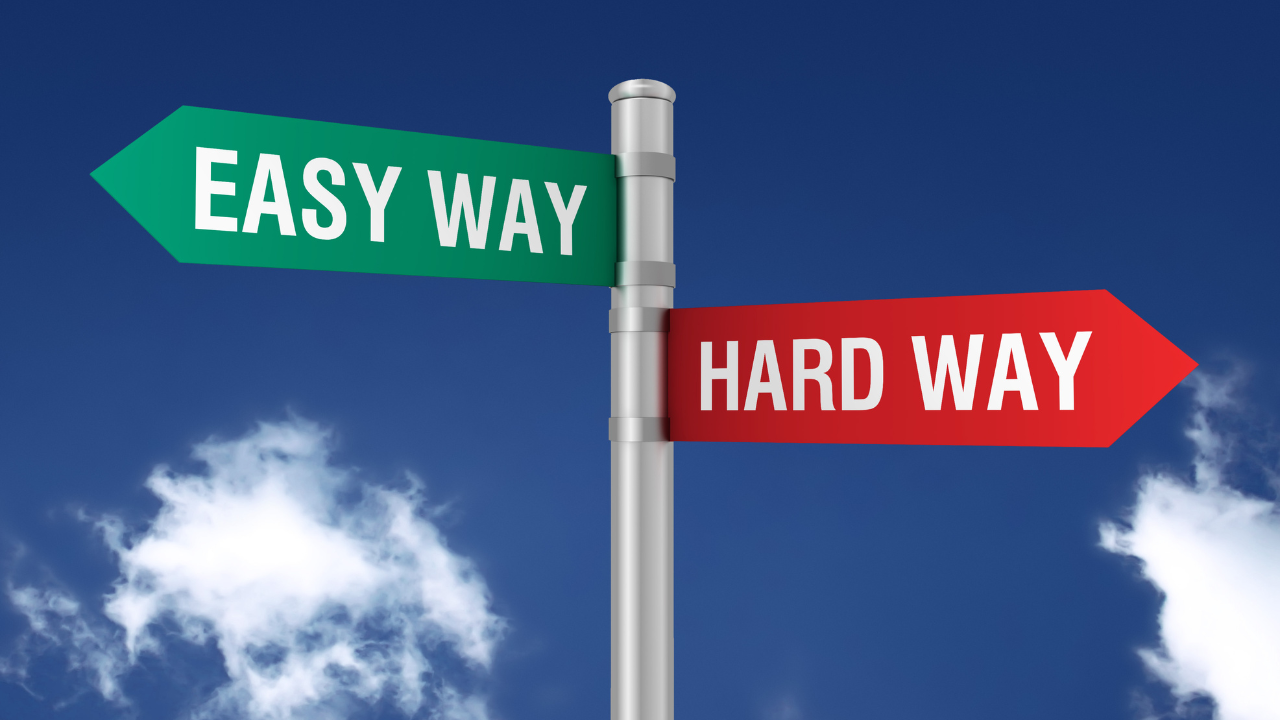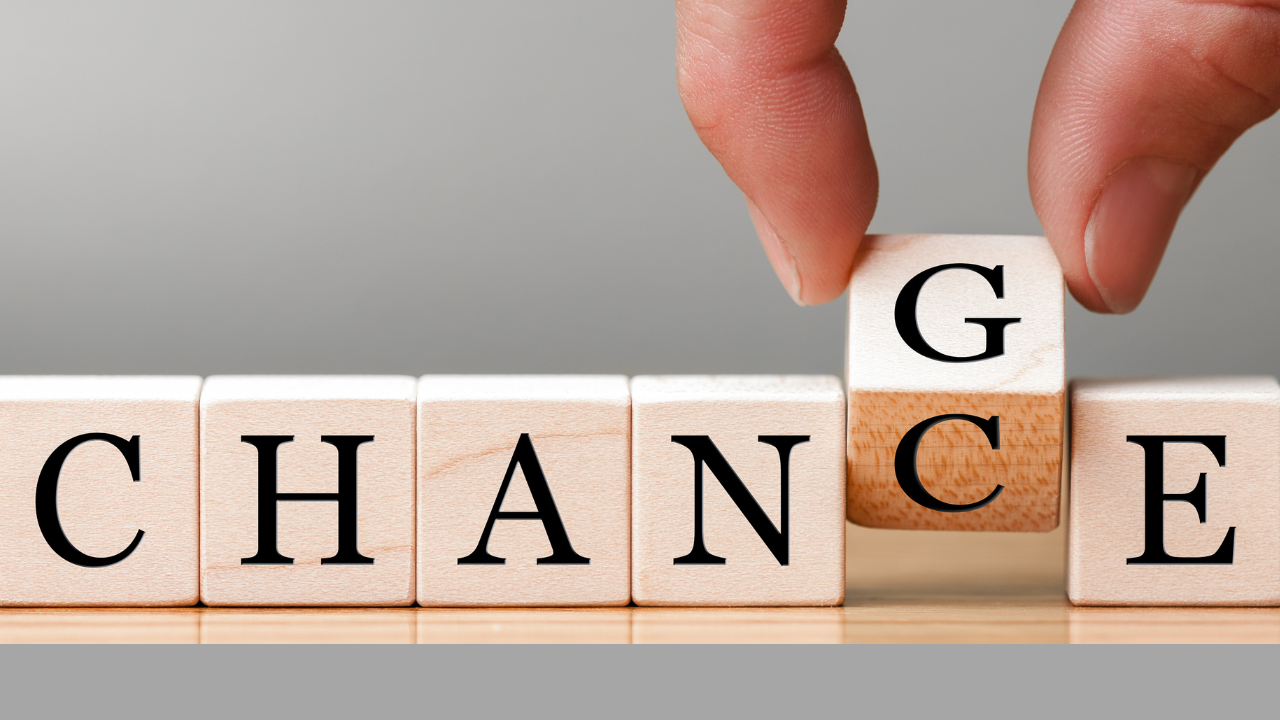Smarter habits for 2nd half of '25

We just crossed the halfway mark of 2025
(on July 2nd, to be exact)
So, I'm checking-in on your nutrition and wellness goals…how is it all going?
Whether you set bold intentions in January or simply told yourself you'd "do better," now is a powerful moment to pause, reflect, and reset.
This post isn’t about guilt or perfection.
It’s about realigning, recalibrating, and making your next steps more effective—and even easier to bring to fruition.

Because behavior change is the real driver of health
If you’ve worked with me, you already know this:
Real transformation doesn’t happen through information alone—it happens through implementation...it's all about what you actually do!
Yes, functional nutrition is an essential foundation.
Reviewing your labs through the optimal health lens, assessing your overall health status, and designing targeted, personalized nutrition strategies are all essential—but they’re only part of the picture.
Long-term success hinges on behavior change—and that’s why it’s woven into every part of my practice.
Back in 2014, I had the honor of training with Dr. B.J. Fogg and his B=MAP model continues to shape my approach to this day.
His B=MAP model for behavior change distills human behavior into a simple, practical formula:
Behavior (B) = Motivation (M) + Ability (A) + Prompt (P).
For behavior to occur, all three elements must converge at the same moment.
- Motivation is your desire to perform the behavior.
- Ability refers to how easy it is to do.
- Prompt is the trigger that cues the behavior.
If any one of these is missing, the behavior won’t happen.
Instead of relying on high motivation (which fluctuates), he advocates focusing on making behaviors easier and anchoring them to existing habits.
The biggest mistakes I see people make when trying to establish healthy habits are:
- They try too hard.
- They endeavor to change too many things at the same time.
- And, when the desired behavior doesn't stick, they assume they’ve failed—and default to the belief that they just need to push harder.
But lasting transformation is not about relying on willpower or pushing yourself harder.
It comes from making change easy, logical, and anchored to what already works in your life.
Small, successful actions create momentum. And momentum changes everything.

Since January, my focus has been to cultivate more calm
We all know chronic stress is one of the most powerful drivers of inflammation, metabolic dysfunction, and cardiovascular disease. As a result, helping my clients manage their perception of stress is a crucial part of my practice.
My long-standing meditation practice has helped enormously with managing my own stress, however, I was still defaulting to my natural 'maximize every moment' mode.
While this default behavior always helped me 'feel' efficient, I knew it wasn’t doing my nervous system (or my overall well-being) any favors.
The turning point came back in December, on one of my regular hikes with close girlfriends. We’d pushed our start time back by 30 minutes to accommodate someone’s dental appointment, and as we walked, we each shared what we’d done with that 'extra' time.
When it was my turn, everyone laughed—because I’d managed to literally cram no less than 5 errands into that 30-minute window!
Every minute packed, every moment 100% rushed.
Anyone I passed or ran into during that short window of time got the classic “I can’t stop—gotta keep running” wave or a quick, breathless half-smile.
No space for presence.
No room for calm.
And definitely not the grounded, heart-centered energy I strive to embody—or project!
That hike was a wake-up call
I recognized that in order to further regulate my nervous system, I needed to stop filling the gaps and start protecting the margins in my day
So I made a simple commitment: Arrive everywhere 5–10 minutes early.
It’s not revolutionary—but it’s been transformational.
Now, I arrive without the last minute scramble, without the stress!
I have time to breathe, reset, and even enjoy the transition from one thing to the next.
And while I’m not perfect about it, this small shift has made a measurable difference in my mood, mindset, as well as in my heart rate variability.
Now it’s your turn, don't leave facilitating behavior change to chance
As we enter the second half of the 2025, consider:
-
Are your current habits supporting your health—or sabotaging it?
-
Are your days filled with intention—or default-mode rushing?
-
What small shift could you make that would help you reclaim your energy, lower your stress, or be more proactive about your heart health?
Remember, you don’t need to overhaul your life.
You just need to start where you are—and build from there.
Because sustainable change starts with smart, do-able steps—not Herculean or heroic effort.
In summary (TL;DR):
We're halfway through 2025—how are your health goals holding up?
This post highlights why functional nutrition alone isn’t enough; real change comes from sustainable behavior shifts.
I share my personal commitment to creating more calm (by simply arriving 5–10 minutes early) and explain how small, strategic habits can have a big impact on your energy, stress, and heart health.
Takeaway: You don’t need to try harder—you need to shift smarter.
Start with one small change. Grab the chia pudding recipe and go from there.
Small shifts now = bigger wins later. Let's finish 2025 strong!
Need help resetting your goals?
This is exactly the kind of work we do in the 90-Day Proactive Heart Health Program™.
It’s personalized, practical, and rooted in both cutting-edge science and real-life behavior strategies.
If you're ready to feel better and stay better, I’d love to support you.



